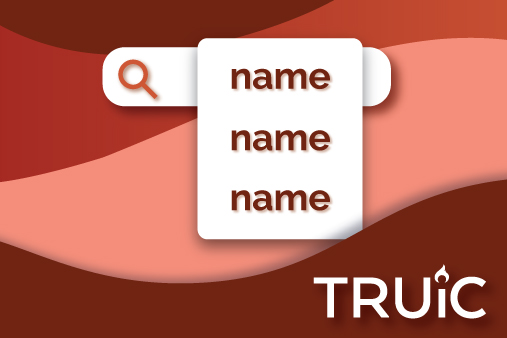How to Start a Business With No Money
Starting your own business doesn’t have to require a lot of capital. In fact, you can start a small business with no money at all. If you’re dreaming about launching your own company but don’t have the cash to start, we are here to help with this guide on how to start a business with no money.

Starting a Business With No Money
How Much Does It Cost to Start a Business?
Depending on the industry and location, starting a small business can cost anywhere from $0 to a million dollars. For example, the cost of starting a dog walking venture will be far less than starting a specialty coffee shop. The exact amount of capital you will need to start your business is impacted by a few variables such as how much equipment you need, the cost of licensing your business, and more.
A good place to start is by understanding the types of costs you will need to account for before starting a company:
- Fixed costs are the expenses you will incur regardless of whether your business is open or not. Three examples of this are insurance, labor costs, and lease payments.
- Variable costs are expenses you can anticipate paying but the exact amount you pay will vary such as utilities and materials.
- Ongoing costs are expenses that will be incurred continuously and typically increase in cost.
- Essential costs are expenses that are absolutely necessary to the success of your company. A few examples of this are marketing and bookkeeping costs.
- Optional costs are typically made when there is an excess of capital. These aren’t expenses that are essential to the operation of your business and may not contribute to your return on investment (ROI).
How Do I Start a Business With No Money?
Start Saving Your Money Now
Save everything you can to put toward your new venture. Consider creating a budget based on your current income to establish the amount of money you are able to save every month to put towards starting a business and stick with it. This may mean alterations to your lifestyle such as bringing lunch to work rather than dining out.
Analyze Your Strengths and Weaknesses
Successful entrepreneurs aren’t good at everything they try their hand at; they are aware of their strengths and weaknesses and utilize them to the advantage of their company. Be honest with yourself about what your skill level is and where you might need improvement or the help of a more experienced resource.
Knowing your strengths and weaknesses can help you establish attainable goals and secure necessary resources to help where needed, increasing your chances of success.
Conduct Research
Developing a baseline of knowledge is essential for starting a small business. The more you know before you begin forming your company will not only help the process run more smoothly but it will also increase the likelihood of your success starting out. Important places to start researching are the basics of starting a business, the industry you’re starting a company in, and your soon-to-be competitors. This will help you establish your target market and inform your business plan.
Create a Solid Business Plan
Your business plan is the roadmap to the first three to five years of your company’s life, and it is absolutely essential to the success and wellness of your venture. Developing an effective plan will help you accomplish the steps necessary to reach important milestones. Easily create your plan using our free business plan generator.
Seek Support
There are a myriad of resources available for new entrepreneurs to learn the essentials of company ownership. Two of our favorite resources are the Small Business Administration (SBA) and SCORE. In addition to this, consider finding an experienced business mentor that can help guide you through the process.
Use the Free Business Tools and Resources Available
An easy way to start a business without funding is to utilize the free tools and resources available. Doing so can save you capital that you would’ve spent hiring professionals or paying for services you can do for free online.
Recommended: Check out TRUiC’s free business tools and resources that can help you when starting a business!
Explore Funding Opportunities
Most small businesses require some additional funding to start. Fortunately, there are quite a few options available to source capital from including small business grants, business credit, small business loans, and friends and family loans. All of which can be used differently depending on the amount of funding you need and what you qualify for.
Low-Cost Business Ideas
Teaching & Consulting Businesses
Personal Training Consulting Business — This type of venture only requires your personal training abilities and a method for marketing your services. The only costs to start a personal training consulting company are the initial cost of getting your certification, about $1000 for advertising, and a few hundred for liability insurance.
College Planning Business — A college planning company serves as a resource for students on the pathway to college including arranging college visits, analyzing student records, and developing college admission strategies. This venture requires only a computer, a website, marketing materials, and an understanding of the college admissions process to start.
Web-Based Businesses
Social Media Marketing Business — If you excel at online marketing strategy and possess a strong understanding of search engine optimization (SEO) and various social media platforms, this is a great low-cost business to start. The key things you will need funding for are software/hardware updates as well as the time and money to dedicate to keeping up with advancements in the internet marketing world.
Etsy Business — For makers, creatives, and vintage lovers, Etsy offers a platform to sell handmade goods and vintage items for a percentage of the sale (3.5%). Your only other expenses are materials and marketing costs.
Writing & Editing Businesses
Proofreading Business — To excel at this type of venture, you need to have a strong understanding of linguistic mechanics such as grammar and punctuation as well as an eye for detail. This idea is extremely low-cost and typically only requires the cost of computer maintenance, internet, and any necessary marketing.
Digital Art & Design Businesses
Graphic Design Business — This company is ideally suited for people who have an eye for lucrative design and strong computer skills. The biggest expense is the cost of graphic design software, which can be pricey, but the ongoing costs of starting this type of venture are minimal.
Photo Editing Business — Those with a strong background in Photoshop are best suited for this business type, which simply involves editing photos for clients. Costs for starting this company are extremely low, as the only expenses are editing software, internet, and computer maintenance.
Specialty Craft Businesses
Candle Making Business — A candle making company is typically a great fit for creative people with marketing skills. This venture involves making candles, photographing them, and marketing the brand making it a low-cost business to start.
Furniture Upcycling Business —Anyone who wants to combine their carpentry skills with their love of bargain-hunting is a great candidate for this business that refurbishes cheap furniture to resell. The only expenses for this type of company are furniture, materials, shipping costs, and website fees.
Lifestyle Businesses
Personal Styling Business — If you have an exceptional sense of style or a background in fashion or cosmetology as well as connections with media personalities or public faces, a personal styling business may be the entrepreneurial venture for you. The ongoing costs are minimal since clothing and makeup will most likely be charged to the client or incorporated into the cost of your services.
Professional Organizing Business —This is ideal for anyone with a passion for organizing, specifically, installing household organization systems, helping with time management, and organizing paperwork. The only ongoing expenses are transportation and marketing which makes this an extremely low-cost business.
Cleaning & Maintenance
Lawn Care Business —This requires a love of being outdoors, physical stamina, and maintenance skills of both lawns and equipment. The costs associated with a lawn care company are insurance, equipment maintenance, advertising, and additional labor.
Cleaning Business — Cleaning businesses can either offer general cleaning services or specialized services such as offices or households. This requires a great deal of labor and time commitment. The costs to start this venture can be higher than is ideal for cleaners and equipment; however, quick cleaning jobs can result in more profit and higher customer satisfaction.
Check out our full list of low-cost business ideas.
Free Tools and Resources
Start a Business in Your State
- Alabama
- Alaska
- Arizona
- Arkansas
- California
- Colorado
- Connecticut
- Delaware
- Florida
- Georgia
- Hawaii
- Idaho
- Illinois
- Indiana
- Iowa
- Kansas
- Kentucky
- Louisiana
- Maine
- Maryland
- Massachusetts
- Michigan
- Minnesota
- Mississippi
- Missouri
- Montana
- Nebraska
- Nevada
- New Hampshire
- New Jersey
- New Mexico
- New York
- North Carolina
- North Dakota
- Ohio
- Oklahoma
- Oregon
- Pennsylvania
- Rhode Island
- South Carolina
- South Dakota
- Tennessee
- Texas
- Utah
- Vermont
- Virginia
- Washington
- Washington D.C.
- West Virginia
- Wisconsin
- Wyoming


